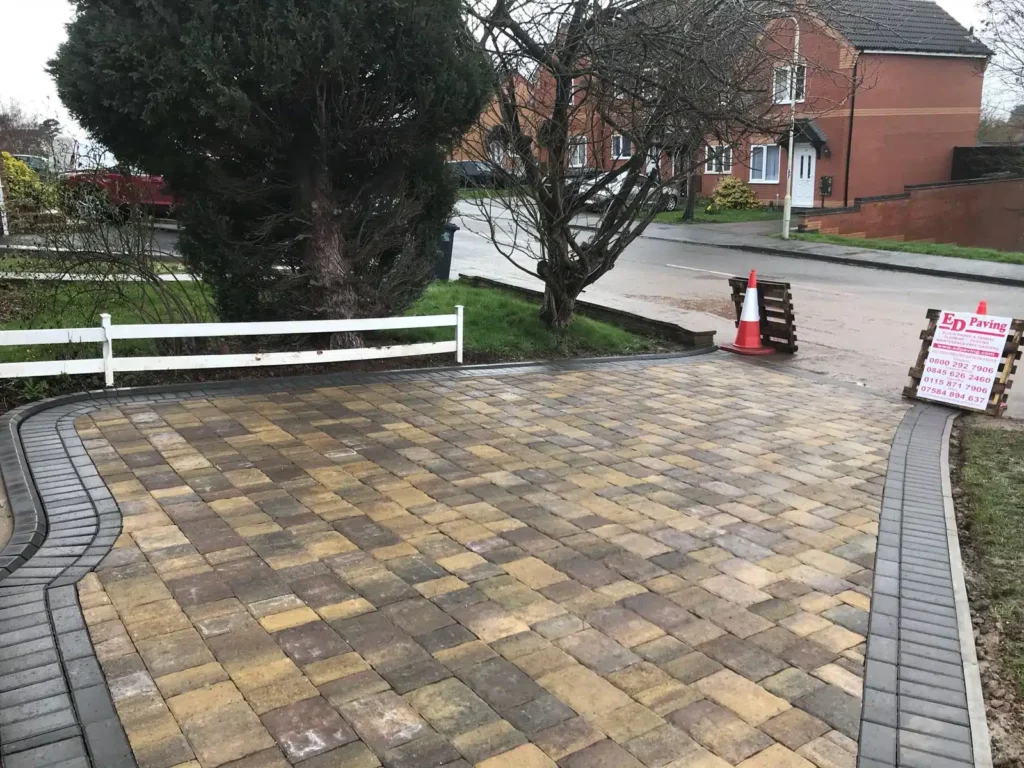Maintaining your driveway is essential to keep it looking great and functioning well over time. Whether you have a gravel, resin, block paving, tarmac, or concrete driveway, regular upkeep is necessary, especially with Nottingham’s variable weather conditions. Here’s a guide to maintaining your driveways in nottingham, ensuring it stays in top shape for years to come.
1. Regular Cleaning
One of the simplest ways to maintain your driveway is by regularly cleaning it. Dirt, debris, and organic matter like leaves and moss can accumulate over time, leading to stains and surface degradation.
- Sweeping: Use a broom or a leaf blower to remove loose debris. This prevents the buildup of dirt that can be ground into the surface over time.
- Hose or Pressure Wash: For more thorough cleaning, hose down your driveway with water. For tougher stains or grime, use a pressure washer, particularly on surfaces like block paving, concrete, or tarmac. Avoid using too much pressure on resin-bound driveways to prevent damage to the surface.
- Use Mild Cleaners: If you notice oil stains or marks, use mild detergents or specialized driveway cleaners to treat the surface. Avoid harsh chemicals that could damage the material.
2. Weed Control
Weeds are a common problem for certain types of driveways, particularly block paving and gravel. If left unchecked, weeds can not only be unsightly but also cause damage to the driveway surface by growing through cracks or gaps.
- Apply Weed Killer: For block paving or gravel driveways, use a weed killer twice a year, preferably in the spring and autumn, to prevent weed growth.
- Hand-Weeding: For smaller areas or where weeds are just starting to grow, hand-weeding is an effective method.
- Replenish Gravel: Over time, gravel driveways may lose some material, making them more prone to weed growth. Add fresh gravel periodically to maintain the thickness and prevent weeds from taking hold.
3. Repairing Cracks and Potholes
Cracks and potholes are more common in driveways made from tarmac, concrete, or block paving. Addressing these issues quickly can prevent further damage.
- Filling Cracks in Tarmac and Concrete: Use crack filler or tarmac repair compound to seal small cracks before they expand. For concrete driveways, use a concrete filler or patching material.
- Pothole Repair: Larger potholes require more attention. For tarmac, remove loose material, clean the area, and fill with tarmac repair compound. For block paving, remove the damaged blocks, level the base, and replace with new blocks.
4. Sealing the Driveway
Sealing your driveway is a key maintenance task that helps protect it from water, stains, and UV damage. Not all driveway materials require sealing, but for those that do, it can greatly extend the lifespan of the surface.
- Block Paving: Applying a sealant to block paving can prevent weeds from growing between the blocks and protect the surface from stains. Seal the driveway every 2–3 years.
- Concrete: Sealing a concrete driveway every few years prevents water infiltration, which can cause cracks and surface damage, especially during Nottingham’s cold winters.
- Tarmac: Tarmac driveways benefit from seal coating to restore color and protect against UV damage, water, and oil stains.
5. Managing Water Drainage
Ensuring proper water drainage is essential to avoid damage from pooling water or flooding. Nottingham’s frequent rain can take a toll on driveways that don’t have proper drainage systems.
- Check for Standing Water: After heavy rain, inspect your driveway for areas where water pools. Standing water can lead to surface erosion and cracking.
- Install Drainage Channels: If water drainage is a recurring issue, consider installing drainage channels or gravel borders along the edges of your driveway to help direct water away.
- Clean Drainage Systems: If your driveway has drainage grates or channels, clean them regularly to prevent blockages from leaves, dirt, or other debris.
6. Winter Maintenance: Dealing with Ice and Snow
Winter can be harsh on your driveway, especially with freezing temperatures leading to ice and snow buildup. Proper winter maintenance is key to preventing damage during the colder months.
-1920w.jpg)
- Use De-Icers Sparingly: Salt and chemical de-icers can damage some driveway materials, especially concrete and tarmac. Use de-icers sparingly and consider using alternatives like sand or gravel to provide traction.
- Remove Snow Carefully: Shoveling snow is necessary, but be careful not to use sharp tools that could damage the surface. Use a plastic shovel rather than a metal one to avoid scratching resin or block paving driveways.
- Clear Ice Promptly: If ice forms, clear it promptly using sand or grit. Avoid using metal tools to chip away ice, as this can damage the surface.
7. Preventing Oil and Grease Stains
Driveways are often exposed to oil, grease, and other vehicle fluids that can cause unsightly stains if not addressed quickly.
- Absorb Spills Immediately: If you notice an oil or grease spill, use absorbent materials like cat litter or baking soda to soak up the liquid. Leave it on the stain for a few hours before sweeping it away.
- Use a Degreaser: For older or stubborn oil stains, use a commercial degreaser or a mixture of detergent and warm water. Apply it to the stain and scrub with a stiff brush before rinsing with water.
8. Resin Driveway Specific Maintenance
Resin-bound driveways are popular in Nottingham due to their durability and aesthetic appeal, but they still require occasional maintenance to keep them in optimal condition.
- Regular Cleaning: Resin driveways should be regularly swept and cleaned with a hose or pressure washer to remove dirt and prevent the buildup of moss and algae.
- Check for Surface Wear: Over time, heavy traffic may cause wear on resin surfaces. If you notice signs of surface degradation, contact a professional to assess if resurfacing is needed.
9. Replenishing Gravel Driveways
Gravel driveways, though low-maintenance, require occasional replenishing of gravel to maintain a smooth and even surface.
- Top Up Gravel: Over time, the gravel may thin out due to use and weather conditions. Replenishing it every few years helps keep the driveway looking full and even.
- Rake the Surface: Regularly raking the gravel keeps it evenly distributed and prevents dips or low spots where water may collect.
Conclusion
Maintaining your driveway in Nottingham is a straightforward process if you stay on top of regular cleaning, repairs, and seasonal upkeep. Whether you have a resin, tarmac, block paving, concrete, or gravel driveway, following these maintenance tips will ensure it remains in excellent condition and continues to enhance the appearance and functionality of your home for years to come.




